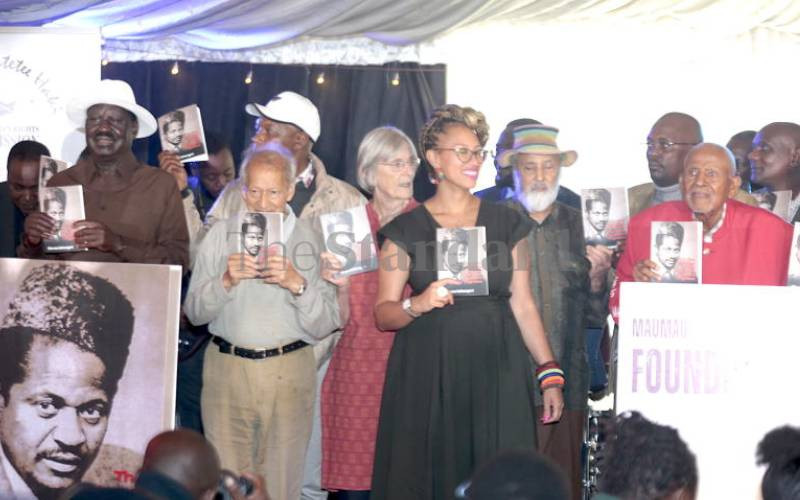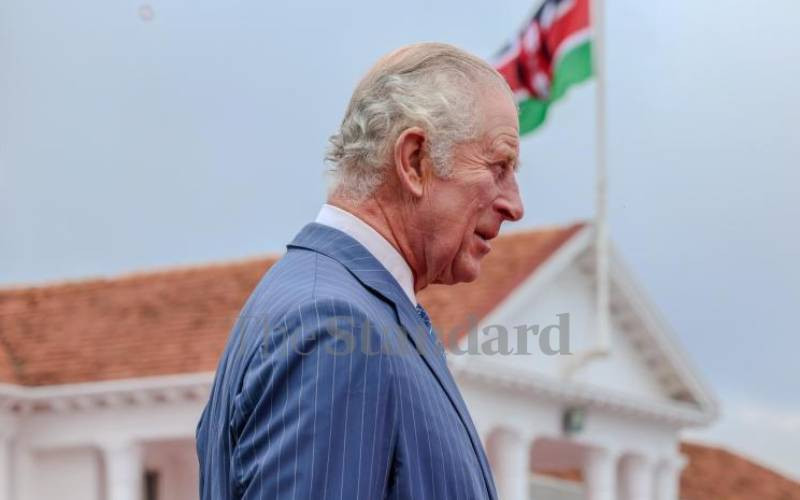By Machua Koinange
Nairobi, Kenya: New details emerged Thursday of the unbanning of the Mau Mau movement that opened the way for Sh2.6 billion payout from the British Government.
Banned under the colonial government 53 years ago today, the movement remained outlawed throughout the Kenyatta and Moi governments and into Kibaki’s first tenure beginning in 2002.
In an interview Thursday on the sidelines of the historic announcement in Nairobi and London, lawyer Paul Muite revealed the dilemma that unlocked the barrier for Mau Mau veterans seeking redress for atrocities from Britain.
“How do we attempt to seek compensation on behalf of an organisation that was not only legally banned but was still considered dangerous?” he asked senior government figures then during the homecoming for former minister Chris Murungaru.
In attendance at the homecoming were Mau Mau veterans who looked on from the fringes as the partying and back-slapping progressed, the Nairobi lawyer and political activist recalls.
Muite recalls that many of the Mau Mau war veterans who attended looked like they had clearly fallen on hard times. He was invited to address the gathering.
“They looked poor and beaten. I spoke and asked, what are we doing here? How could we be celebrating yet the real liberation heroes were suffering?”
He told them that independence had been won from the blood spilt by freedom fighters, yet many of them lived in abject poverty. Muite’s comments touched Murungaru. After the party, he pulled Muite aside. He had been moved by his comments and he asked Muite what could they do?
Muite says he responded that the only way forward was to lift the ban on the Mau Mau, which was still a proscribed organisation 40 years after independence and remained branded as a terrorist organisation by the British Government.
The history of Mau Mau’s ban goes back to legal notice number 913 of 1950 issued by the Colonial Government that effectively consigned fighters to the forests and forced it to operate underground.
Published 53 years ago today, the legal notice had been issued under the colonial societies Act. Says Muite: “When we became independent in 1963 we did not enact all the laws. It was logistically impossible for us to enact all the laws under the new constitution.”
New societies
The new constitution had been hammered out under the aegis of the Lancaster house conference.
Muite says though Kenya had a new constitution, which was the framework for acts of Parliament, it was not possible overnight to enact new laws for the newly independent nation.
Stay informed. Subscribe to our newsletter
“Existing laws at this time continued to be in force like the societies act.” A new societies Act came into force only in 1968 under the new constitution. But the Kenyatta Government did something remarkable. “They re-gazetted the notice banning the Mau Mau when the new societies Act came into force,” says Muite.
That almost amounts to retroactively lifting the ban on Mau Mau and banning it using a different pen.
Muite prodded Murungaru not to discuss the issue with the President. What’s more he drafted and provided a copy of a draft legal notice that would lift the ban on Mau Mau and handed it to Murungaru.
Eventually, he reveals, Murungaru opted to gazette the unbanning order without reference to the President, only consulting him after the notice had been published.
 The Standard Group Plc is a
multi-media organization with investments in media platforms spanning newspaper
print operations, television, radio broadcasting, digital and online services. The
Standard Group is recognized as a leading multi-media house in Kenya with a key
influence in matters of national and international interest.
The Standard Group Plc is a
multi-media organization with investments in media platforms spanning newspaper
print operations, television, radio broadcasting, digital and online services. The
Standard Group is recognized as a leading multi-media house in Kenya with a key
influence in matters of national and international interest.
 The Standard Group Plc is a
multi-media organization with investments in media platforms spanning newspaper
print operations, television, radio broadcasting, digital and online services. The
Standard Group is recognized as a leading multi-media house in Kenya with a key
influence in matters of national and international interest.
The Standard Group Plc is a
multi-media organization with investments in media platforms spanning newspaper
print operations, television, radio broadcasting, digital and online services. The
Standard Group is recognized as a leading multi-media house in Kenya with a key
influence in matters of national and international interest.








